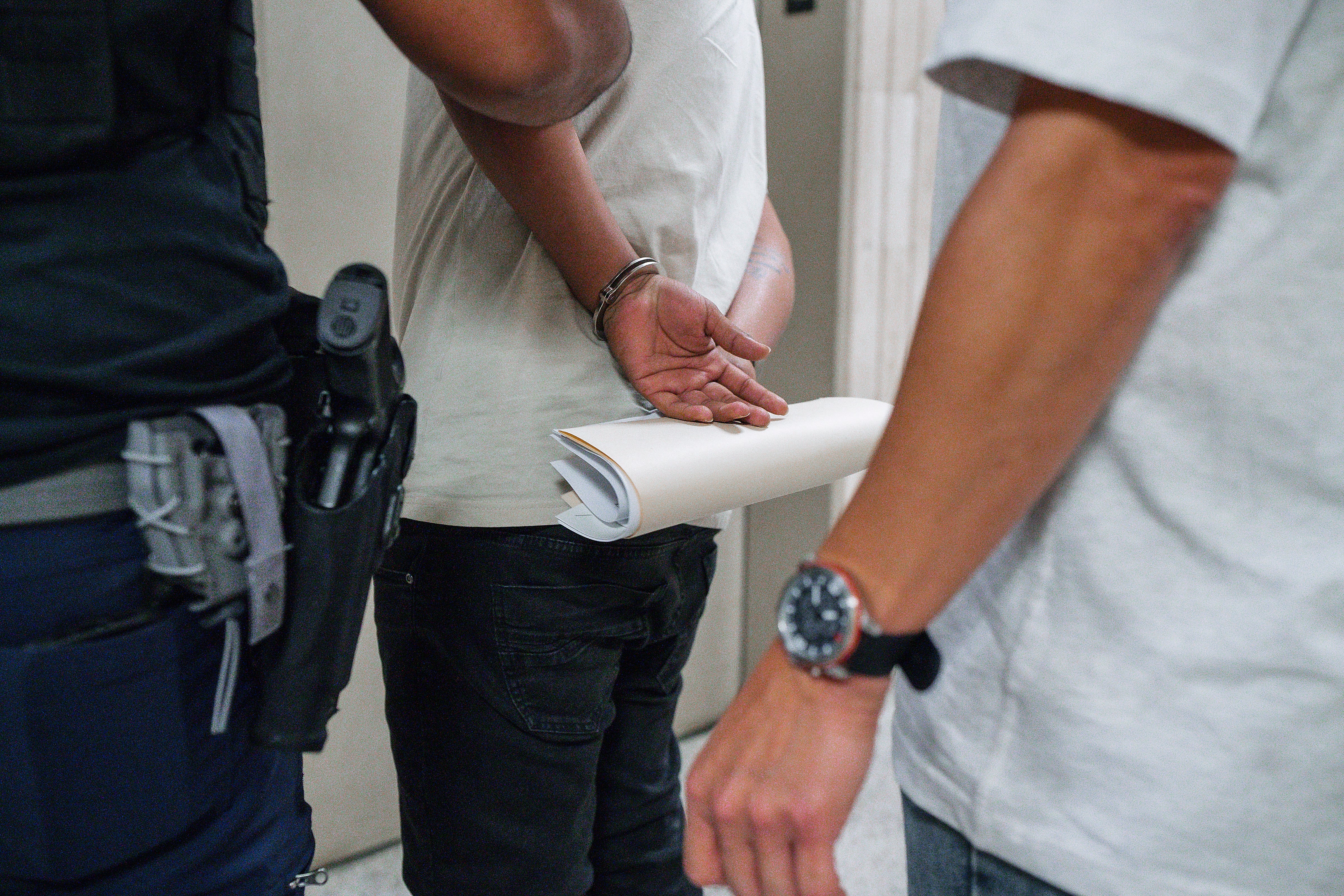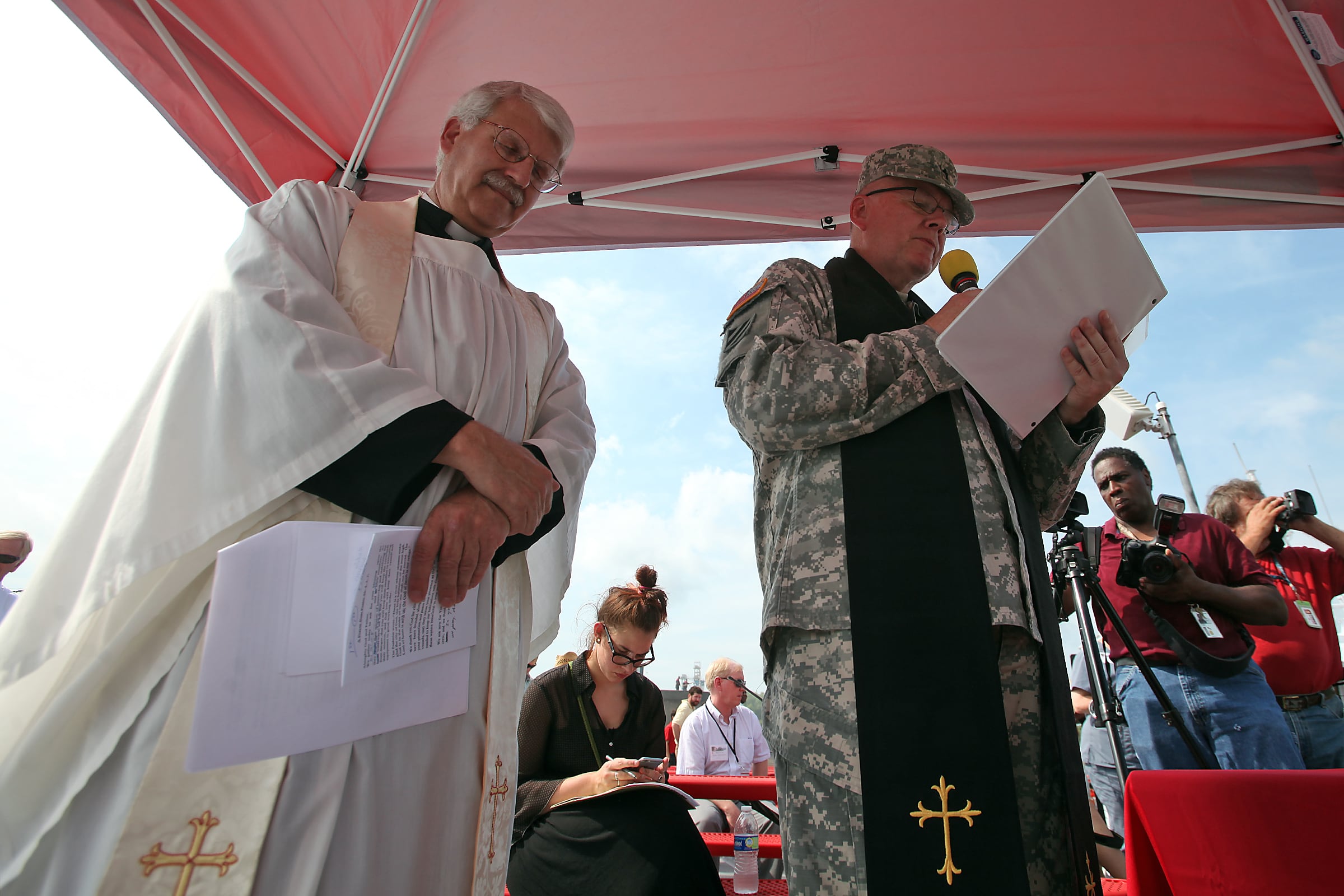For this year's Sexual Assault Prevention and Response Awareness Month, the Navy is asking sailors to help eliminate sexual assault by stepping up to protect themselves and their shipmates.
The Navy is out to dispel myths about what sexual assault is and who it affects, while encouraging sailors to treat each other with respect in general, the Navy's top sexual assault prevention officer head of the 21st Century Sailor Office told Navy Times.
"Know that having sex with someone without their consent is could be sexual assault," Rear Adm. Rick Snyder, head of the 21st Century Sailor Office, said in an April 16 phone interview. "You've got to know your part in not being an alleged offender."
And likewise, he added, potential survivors should know that if they haven't given consent, they can come forward.
"You need to know that these activities that happen to you, that you may not have thought were sexual assault, may in fact be sexual assault, and we need you to come forward so that we can get you the help you need and we can hold the offenders appropriately accountable," he said.
Sexual Assault Awareness Month is marked by community events like picnics and 5K runs, Snyder said, but the idea is to restartet the conversation each year so that it continues in the following months.
"The more often we have the discussion, the more normal it will seem as something that we talk about," he said.
Statistics from the chief of naval personnel's office show that the Navy had a 10 percent jump in reported bump in sexual assault reports from fiscal year 2013 to 2014.
It's a significant increase, Snyder said, but it's considerably less than the 53 percent increase between 2012 and 2013.
His focus is on closing the gap between official reports and total incidents of unwanted sexual contact.
Extrapolated results from a 2014 survey by the RAND Corporation estimated 5,600 instances of unwanted sexual contact, which is sharply down from 10,600 in fiscal year 2012.
"The surveys are showing us that the prevalence has come down, and clearly the number of reports have gone up," Snyder said. "It indicates we've made some progress, the effort we put forward the past several years has paid off."
Those numbers mean that about one out of three women didn't report the assaults, which is up from one in six in 2012.
Additionally, half of those 5,600 victims are male, Snyder said, and only one in 12 of them is reporting.
"We need to continue to address that as an issue, to make sure that we understand for males, the definition of sexual assault is the same," he said. "Whether its happens as part of hazing or something else, it's sexual assault."
There are services for those who choose not report, like the Defense Department's Safe Help Line and civilian organizations, but Snyder said his office wants more survivors to report.
One of the biggest barriers to reporting, survivors have said, is the invasive legal process and the low number of prosecutions that result from it.
Snyder acknowledged that the Naval Criminal Investigative Service and the judge advocate corps have some work to do in handling sexual assault cases, and that meetings are going on with representatives from the victims' legal counsel to improve the process.
"Whether it's the timing of interviews, the content of interviews," he said. "NCIS wants to do a thorough and complete investigation, victim's legal counsel wants best interests of victim. They're working together to find a common ground."
While the Navy is taking steps to better support survivors and prevent assault in the first place, they're not looking into more strident measures, like so-called "enthusiastic consent" laws that are now in effect on California college campuses.
The laws raise the threshold for sexual assault from the commonly used standard of, "Did she say no?" to put the responsibility on the other party to assure that she says an enthusiastic 'yes.'
In 2014, a private sexual assault training course called "Can I Kiss You?" visited several bases to promote the idea of asking for permission, but Snyder said the Navy isn't looking into making that a regulation.
"I would broaden that discussion into one of treating one another with dignity and respect," he said. "And that would encompass that, if you are going to have some sort of sexual interaction or relationship, that it's done with dignity and respect on both sides."
Meghann Myers is the Pentagon bureau chief at Military Times. She covers operations, policy, personnel, leadership and other issues affecting service members.





